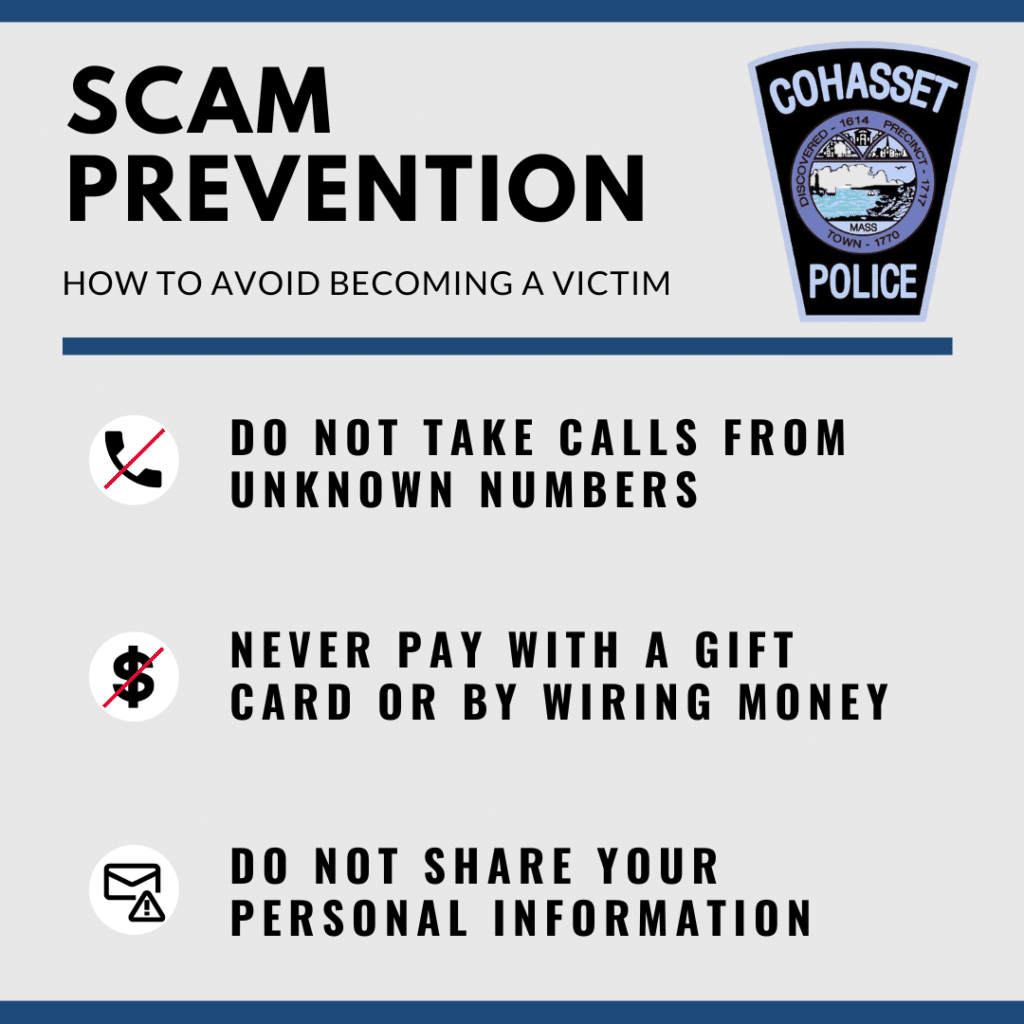COHASSET — Amid a recent increase in various types of reported scams, William Quigley and the Cohasset Police Department would like to share with residents tips on how to prevent falling victim.
The department has seen an increase in scams over the past several weeks. In one instance, the scammer spoofed a local police department’s phone number to demand money. Scams that use impersonated telephone numbers and email addresses are known as spoofing scams, and employ the faked contact information in an effort to make it appear that scammers are from legitimate sources.
Residents should note that government agencies, including law enforcement, never contact the public demanding payment by wire transfer or by prepaid cards.
The Cohasset Police Department would like to share the following tips from the Federal Trade Commission to help prevent scams:
- Do not take calls from unknown numbers.
- Caller ID is not always accurate. A call from a “local” number might not be coming from a local person or organization.
- Do not share personal, identifying information like your Social Security Number, account numbers, or your mother’s maiden name.
- If a caller claims to represent an organization and you are doubtful, hang up and contact that agency to verify whether the call was truly from a representative.
- Never pay a caller with a gift card.
- Telemarketers are required by law to state that they are making a sales call. They are mandated to say the name of the seller and the product before pitching their sale. If this does not happen, hang up.
- Be wary of callers who talk quickly and pressure you to make a decision quickly.
- Do not buy a product or service because of a “free gift.”
- Get all information in writing before making a purchase.
- Verify the legitimacy of a charity before donating.
- Before making an investment that a caller or emailer is offering, check with your state securities regulator to make sure the offer is properly registered.
- Do not send cash by messenger, overnight mail, or money transfer. If you pay for a product or service with cash or a money transfer, you run the risk of losing the right to dispute fraudulent charges.
- Do not accept an offer that requires a registration or shipping fee to get a prize or gift.
- Beware of offers to “help” recover money that you already have lost. Scammers sometimes pose as law enforcement officers who will help get money back for a fee.
- Report rude or abusive callers, even if you already sent them money, by calling 1-877-FTC-HELP or by visiting ftc.gov/complaint.
Additionally, residents should NEVER give personal information, social security numbers or credit card numbers to people through social media, or to people who call their homes or cell phones unsolicited.
While it can be difficult to recover funds lost as a result of scams, residents and community members should always report scams to the police. Residents who believe they may have fallen victim are encouraged to contact the Cohasset Police Department at 781-383-1212.
For more information about scams, visit the Federal Trade Commission’s website or the state’s website.
###

